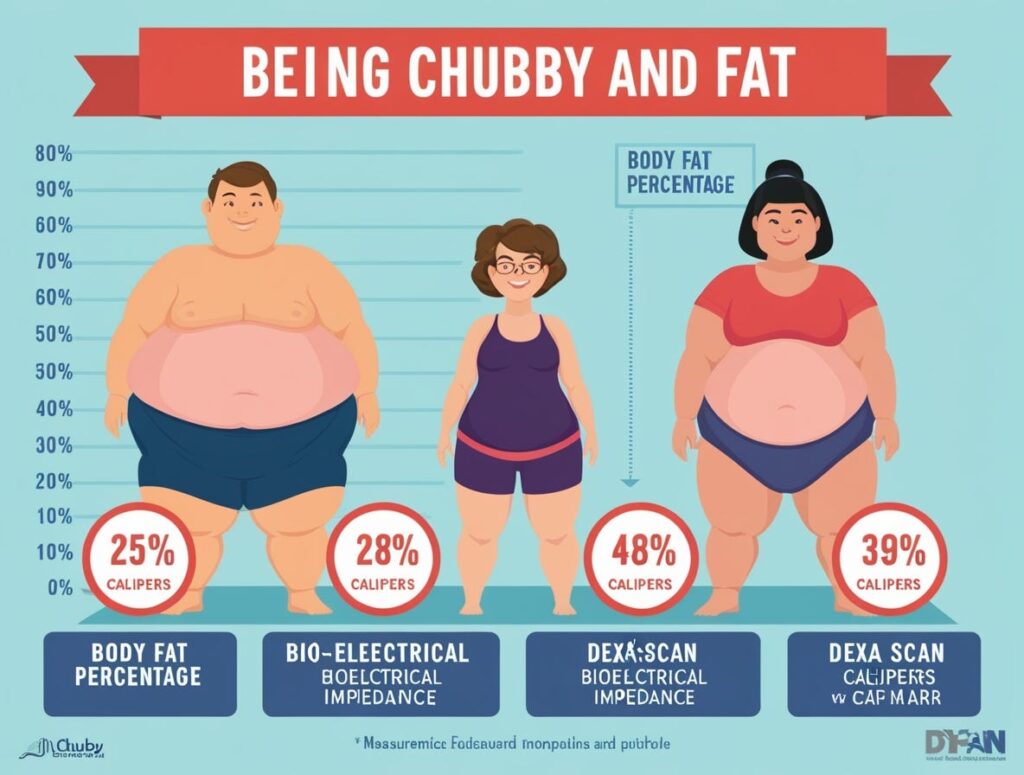The words “chubby” and “fat” are often used to describe someone’s body size, but they carry vastly different connotations. While both terms relate to weight, understanding their subtle distinctions is crucial for navigating sensitive conversations about body image. This article will delve into the definitions of “chubby” and “fat,” explore their respective connotations, examine the societal impact on how we use these words, and ultimately guide you towards more sensitive communication about weight.
Chubby vs Fat Definitions
At their core, both “chubby” and “fat” refer to a person having excess body weight. However, the degree of weight considered “excess” and the overall impression conveyed by each term differ significantly. “Chubby” generally describes a pleasantly plump physique, often associated with youthfulness and cuteness. It suggests a moderate amount of extra weight that is not necessarily perceived as unhealthy or problematic. Conversely, “fat” implies a larger amount of excess weight, often exceeding what is considered healthy.
It’s important to note that these definitions are subjective and can vary based on cultural norms, personal perspectives, and individual experiences. What one person considers “chubby” another might perceive as “average,” and vice versa.
Connotations of “Chubby”

The word “chubby” often carries positive or neutral connotations. It is frequently used to describe children with rounded features, suggesting a healthy and well-nourished appearance. In some contexts, “chubby” can also be seen as endearing or even attractive, particularly when describing someone with a soft, cuddly physique.
However, it’s important to be mindful of the context in which “chubby” is used. While generally positive, it can sometimes carry subtle implications about weight gain or lack of physical activity. It’s always best to err on the side of caution and consider the individual’s feelings before using this term.
Connotations of “Fat”
The word “fat” often carries negative connotations and can be perceived as judgmental, hurtful, and even offensive. It is frequently associated with health concerns, social stigma, and discrimination. Using “fat” to describe someone can contribute to body shaming and reinforce harmful stereotypes about weight.
It’s crucial to avoid using “fat” in a derogatory or insensitive manner. Instead, focus on describing someone’s physical characteristics in a respectful and neutral way, such as mentioning their height, build, or clothing style.
Societal Impact on Body Size Language

Society plays a significant role in shaping our language around body size. Media portrayals, cultural norms, and personal experiences all contribute to the connotations we associate with words like “chubby” and “fat.”
Unfortunately, societal pressures often promote unrealistic beauty standards and equate thinness with attractiveness and success. This can lead to negative body image, weight stigma, and discrimination against individuals who do not conform to these narrow ideals. It’s essential to challenge these harmful stereotypes and promote a more inclusive and accepting view of body diversity.
Sensitive Communication About Weight
When discussing someone’s weight, it’s crucial to prioritize sensitivity, respect, and empathy. Avoid using labels like “chubby” or “fat,” as they can be hurtful and perpetuate negative stereotypes. Instead, focus on the individual’s overall well-being and avoid making comments about their appearance.
If you are concerned about someone’s health, approach the conversation with compassion and support. Offer encouragement and resources rather than judgment or criticism. Remember that everyone deserves to feel comfortable and confident in their own body, regardless of their size.
Conclusion
Understanding the subtle differences between “chubby” and “fat” is essential for navigating sensitive conversations about body size. While both terms relate to weight, they carry distinct connotations and can have a significant impact on how individuals perceive themselves and are treated by others. By choosing our words carefully and promoting a more inclusive and accepting view of body diversity, we can create a more supportive and equitable society for everyone.



